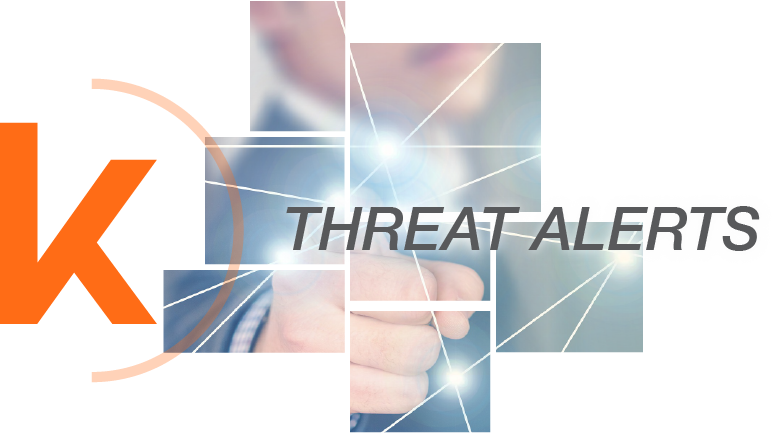Last week, ransomware erodes productivity, a malware attack permanently destroys patient data, and a new study reveals the extent of data breaches in the UK.
United States – TV Eyes
Exploit: Ransomware
TV Eyes: Media monitoring service
Risk to Small Business: 2.222 = Severe: An unidentified ransomware strain has disabled the network’s core servers and engineering workstations. As a result, clients have been unable to access any information, which could have broad and long-lasting financial consequences for the media monitoring company. TV Eyes has declined to pay the ransom. Still, brand erosion and opportunity costs will make this an expensive attack at a critical time for the company, whose services are widely used by news outlets and PR agencies to access media content for reporting purposes.
Individual Risk: 2.875 = Moderate: At this time, no personal information was compromised in the breach. However, some PR professionals and media members had expressed fears that their data was compromised before hackers encrypted their files. Those impacted by the breach should update their account credentials while being especially critical of digital communications.
Customers Impacted: Unknown
How it Could Affect Your Customers’ Business: In addition to academic and government institutions, cybercriminals are increasingly targeting businesses that store customer data. Many are now willing to compromise customer data if ransom demands aren’t met, a new reality that significantly increases the potential damage of a ransomware attack. Since ransomware attacks always require a vulnerability to gain network access, companies should regularly assess their defensive postures to ensure that they are prepared for this nefarious attack methodology.
United States – Electronic Warfare Associates (EWA)
Exploit: Ransomware
Electronic Warfare Associates (EWA): Electronic product and services company
Risk to Small Business: 2.111 = Severe: Cybercriminals encrypted the company’s web servers, leaving customer-facing signs of a cyberattack even several days after the event. In response, the company took down the affected servers, and it’s unclear how much of the company’s internal IT is impacted by the attack. More than a week after the attack was discovered by security researchers, EWA still hasn’t issued a statement to the public. This lack of transparency could complicate their recovery process, which already promises to be an arduous journey due to the complicated nature of their business.
Individual Risk: No personal information was compromised in the breach.
Customers Impacted: Unknown
How it Could Affect Your Customers’ Business: Ransomware attacks often come with cascading consequences that impact every part of a business. Not only does this attack vector come with high up-front expenses, but the reputational damage and opportunity cost can be even more damaging. Every company should assess its threat landscape to ensure that it can adequately defend against a devastating ransomware attack.
United States – Fondren Orthopedic Group
Exploit: Malware attack
Fondren Orthopedic Group: Orthopedic healthcare services provider
Risk to Small Business: 1.555 = Severe: A malware attack destroyed a number of the medical provider’s patient records. The incident was first discovered in November 2019, but IT administrators only recently identified the permanent damage to their digital records. As a result, patients have to complete new patient information forms that include detailed medical histories. Given the sensitive and incredibly important nature of this information, this attack could negatively impact patient care, and it will undoubtedly invite regulatory oversight.
Individual Risk: 2.285 = Severe: Fondren Orthopedic Group noted that there is no evidence of patient information being compromised. However, the lost data includes patients’ names, addresses, phone numbers, treatment data, and healthcare information. It stands to reason that if hackers can erase patient data, then they can also use it for other nefarious purposes. Those impacted by the breach should carefully monitor their online accounts for unusual or suspicious activity, and they should scrutinize digital communications because compromised data is often redeployed in spear-phishing attacks.
Customers Impacted: 30,049
How it Could Affect Your Customers’ Business: After this devastating malware attack, Fondren Orthopedic Group announced an update to their cybersecurity practices, a move that is too little, too late for the thousands of patients impacted by the breach. There are many steps companies can take to mitigate the risk of a data breach, but those steps need to be taken before an incident occurs. Otherwise, these measures serve as vanity metrics as opposed to a defensive strategy.
Risk Levels:
1 – 1.5 = Extreme Risk
1.51 – 2.49 = Severe Risk
2.5 – 3 = Moderate Risk
*The risk score is calculated using a formula that considers a wide range of factors related to the assessed breach.
In Other News:
More than Half of British Consumers Endured a Data Breach in 2019
Globally, data breaches are increasing in both frequency and scope, a reality that is acutely felt by users in the United Kingdom. According to a new study, 58% of UK citizens experienced a data breach in the past twelve months. While today’s cyber threats are complicated and multifaceted, the study attributed the rise of increasingly complicated phishing attacks as a primary vector for data compromise.
Not too long ago, we reported on four phishing attack trends that were impacting the data security landscape, and it’s clear that those methodologies were astonishingly effective at compromising user data in the past year.
However, the report didn’t just identify the troubling trend. It recommends that users ditch their redundant, simplistic, and overly-personal passwords for strong, unique passwords across all of their accounts. Also, it encouraged users to adopt two-factor authentication as an effective way to prevent cybercriminals from gaining account access.
While business email compromise is enabling data breaches with stunning frequency, companies and consumers are not powerless. Contact ID Agent today to learn about our industry-leading tools for repelling phishing scams and protecting account integrity with two-factor authentication.
A Note From Kobargo
Phishing Scam Invokes Executive to Trick Employees
An employee of Village Care Rehabilitation and Nursing Center (VCRN), a non-profit healthcare provider, fell for a complicated phishing scam that compromised patients’ protected health information. The fraudulent message was purportedly sent from a company executive, a scenario that inherently elicited the employee’s trust to provide authority for sharing data via email.
The episode is indicative of how phishing scams have evolved to become more personal and difficult to detect. With data breaches only becoming more expensive and consequential, every business should review and update its security awareness training to ensure that it accounts for the latest threats and trends.
In other words, identifying unsophisticated spear-phishing emails with a spam filter won’t be enough to combat today’s phishing scam trends. However, comprehensive employee awareness training, like that offered by ID Agent, can ensure that your company is protecting against phishing scams.
Contact Kobargo Technology Partners to schedule a free consultation today!



